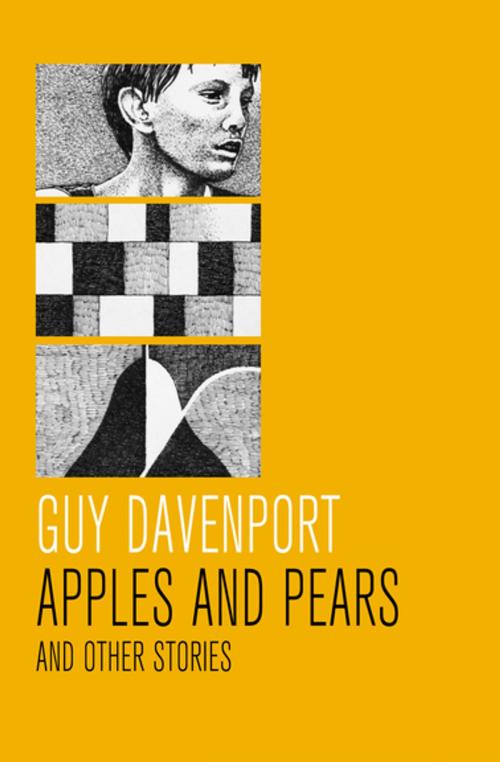| Author: | Guy Davenport | ISBN: | 9781504019620 |
| Publisher: | Open Road Media | Publication: | September 1, 2015 |
| Imprint: | Open Road Media | Language: | English |
| Author: | Guy Davenport |
| ISBN: | 9781504019620 |
| Publisher: | Open Road Media |
| Publication: | September 1, 2015 |
| Imprint: | Open Road Media |
| Language: | English |
Guy Davenport links the essential ideas of our cultural landscape in stories that nod to the philosophers, artists, and writers who came before him
Reality, fiction, history, and art all converge in this collection as Guy Davenport explores complex ideas within narratives that are full of emotional depth. Fearless and inventive in style, these stories take many forms, such as the imagined World War I journals of sculptor Henri Gaudier-Brzeska in “The Bowmen of Shu” and the parallel tales of poets Matsuo Basho and Ezra Pound hiking the same mountain trail centuries apart in “Fifty-Seven Views of Fujiyama.”
In the title story, which also features illustrations by the author, a group of philosophers tries to establish a utopia in Amsterdam, harkening back to a prelapsarian world of uncomplicated sexuality and nature untarnished by human influence. The idea that the past perpetually influences the present is at the heart of Apples and Pears as Davenport relocates his references from all eras to contemporary times—and as he uses measured, poetic language to uncover the cyclical nature of culture.
Guy Davenport links the essential ideas of our cultural landscape in stories that nod to the philosophers, artists, and writers who came before him
Reality, fiction, history, and art all converge in this collection as Guy Davenport explores complex ideas within narratives that are full of emotional depth. Fearless and inventive in style, these stories take many forms, such as the imagined World War I journals of sculptor Henri Gaudier-Brzeska in “The Bowmen of Shu” and the parallel tales of poets Matsuo Basho and Ezra Pound hiking the same mountain trail centuries apart in “Fifty-Seven Views of Fujiyama.”
In the title story, which also features illustrations by the author, a group of philosophers tries to establish a utopia in Amsterdam, harkening back to a prelapsarian world of uncomplicated sexuality and nature untarnished by human influence. The idea that the past perpetually influences the present is at the heart of Apples and Pears as Davenport relocates his references from all eras to contemporary times—and as he uses measured, poetic language to uncover the cyclical nature of culture.















